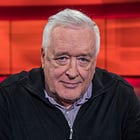What is it like to meet a character you've already given a place to in a science fiction novel? In reality, meeting Robert Zubrin is journeying into the future insofar as he’s already, from the very beginning of his career, undauntedly pursued that dream which, with the successful moon landing in 1969, found glorious fruition – but subsequently has been steadily and stealthy swept away by successive administrations. And so the young scientist, born on the wrong side of the TV screen, initially becoming a teacher, then pursuing a nuclear and space technology career, was left with nothing but utopia. While working for Lockheed Martin, Zubrin developed the concept of Mars Direct, a Mars colonization strategy in which terraforming and energy supply issues played a key role – an idea he made accessible to a broader audience in his best-selling book The Case for Mars (1996). In 1998 Zubrin founded the Mars Society, where Elon Musk became the most prominent member. Because his thinking is fundamentally concerned with concrete, feasible utopias, Zubrin became a critic of the environmental movement early on – not because he found fault with the protection of nature, but because he chalked up the activities of the activists to corruptibility and the betrayal of their ideals. In this sense, his philosophy can be summed up in a simple credo: To preserve the natural, we must create the artificial – making his plea for nuclear technology not merely a technical but also a deeply political plea. Because if the son of a Jewish emigrant family who found a home in Brooklyn has learned one thing from history, it’s that the Malthusian ideology of the natural limit ultimately leads to a struggle for living space in the horror that found its darkest protagonists in the National Socialists - which should serve as warning to all those who once again are clinging to beliefs in the limits of growth.
Robert Zubrin has published















